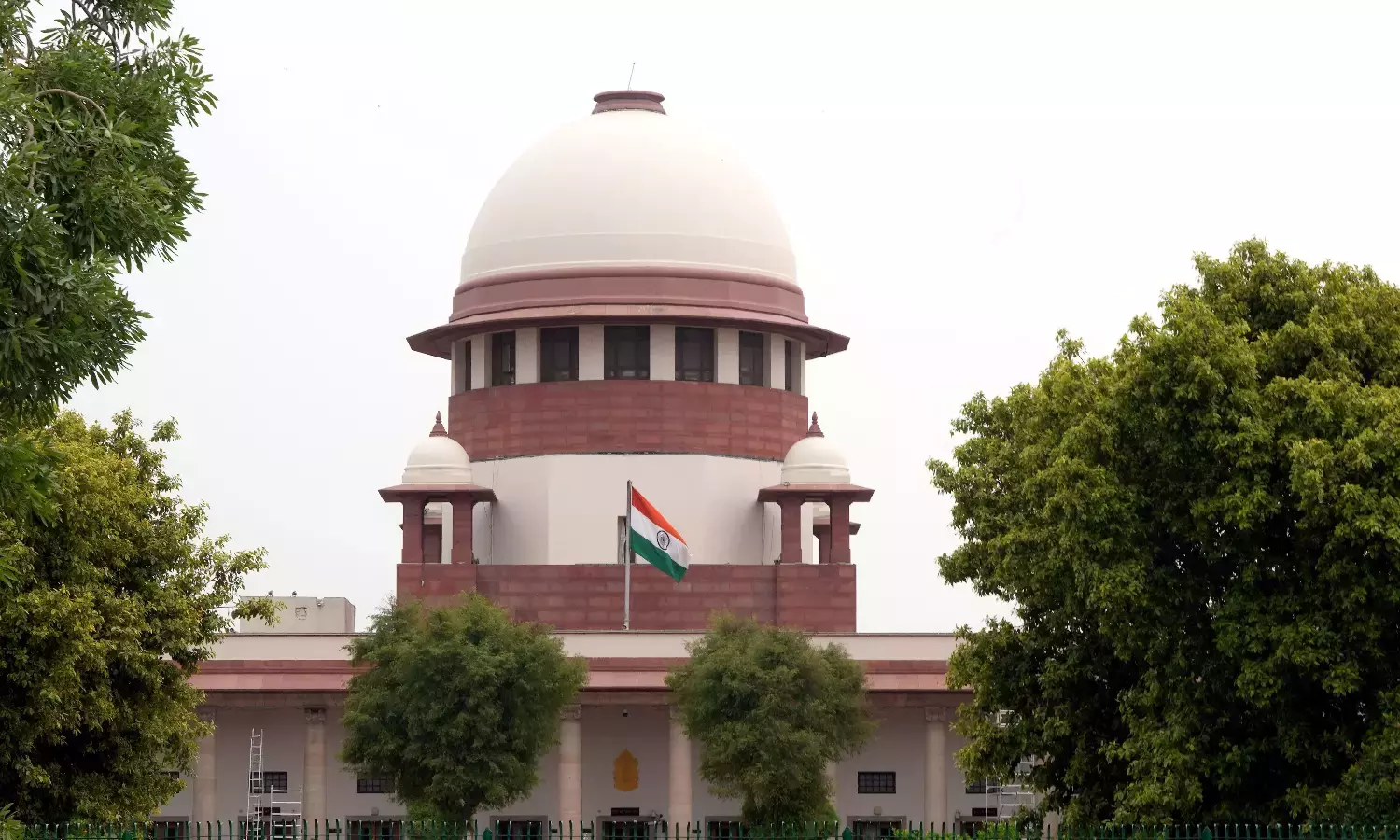
US Supreme Court restricts injunctions on Trump’s birthright citizenship order
text_fieldsWashington: The US Supreme Court has ruled that district judges do not have the authority to issue nationwide injunctions against an executive order by the Trump administration aimed at ending birthright citizenship.
In a 6–3 ruling along ideological lines, the justices sided with the administration’s request to limit the scope of such injunctions, Xinhua news agency reported.
"Federal courts do not exercise general oversight of the executive branch," wrote Justice Amy Coney Barrett for the majority, adding, "When a court concludes that the executive branch has acted unlawfully, the answer is not for the court to exceed its power, too."
The decision drew dissent from the Court’s three liberal justices.
"Children born in the United States and subject to its laws are United States citizens," said Justice Sonia Sotomayor. "That has been the legal rule since the founding."
She further criticised the ruling, stating, "The gamesmanship in this request is apparent, and the Government makes no attempt to hide it. The majority ignores entirely whether the President's Executive Order is constitutional, instead focusing only on the question whether federal courts have the equitable authority to issue universal injunctions."
The Trump administration welcomed the decision, hailing it as a legal victory for executive authority.
Trump called the decision a “giant win” in a Truth Social post, later describing it at the White House as a “monumental victory for the Constitution”.
The 6–3 ruling, issued along ideological lines, limited district judges' authority to issue nationwide injunctions—delivering a significant legal boost to the Trump administration’s efforts to enforce its executive order effectively ending birthright citizenship.
“A huge ruling by the Supreme Court, smacking down the ridiculous process of nationwide injunctions. Under our system, everyone has to follow the law – including judges!” US Vice President JD Vance echoed in a post on X.
Meanwhile, organisations that had previously sued to block the executive order announced a new legal challenge. In a press conference, several advocacy groups said they had filed a class action lawsuit along with a motion for a temporary restraining order aimed at stopping the policy’s implementation, NBC News reported.
Trump signed the executive order just hours after taking office on January 20. The order directed federal agencies to halt recognition of citizenship for children born after February 19 if neither parent is a US citizen nor a permanent resident.
The action prompted swift legal opposition. More than 20 states and civil rights organisations filed lawsuits, calling the measure “unconstitutional”.
The 14th Amendment of the US Constitution states that “all persons born or naturalised in the United States, and subject to the jurisdiction thereof, are citizens of the United States.” Trump’s order argued that the amendment “has always” excluded from birthright citizenship persons who were born in the United States but not “subject to the jurisdiction thereof”.
Federal judges in Washington, Maryland, and Massachusetts had issued nationwide injunctions to block the order’s implementation before the Supreme Court overturned that authority.
(inputs from IANS)
























